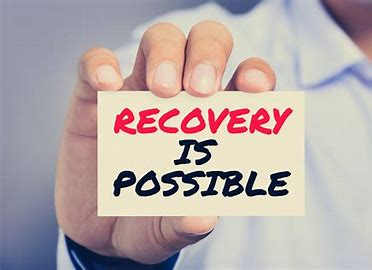SUBSTANCE ABUSE AWARENESS -FOCUS ON RECOVERY
- Hope for Youth SA blogger
- Jun 8, 2023
- 3 min read
Welcome to our weekly column on substance abuse awareness. We are going to dive deep into this topic of substance abuse and hope to raise awareness about it. May you be blessed when reading this article.

Topic of the week:
RECOVERY
Recovery is not an event, but it is a process. It is a lifelong process that requires dedication, willpower, self-discipline and self-motivation and endurance.
What is this about?
Addicts often feel that once they have stopped using drugs, the problem is over.
Stop using drugs is really the first step in your process of recovery.
Recovery is not about getting better, but about making conscious changes in your life.
The objective is for the addict to stay off drugs and stay off drugs while they live, work, and socialize to their best potential.
The recovery process
The recovery process is the following:
Ø Recovery is my responsibility.
Ø Recovery is a life-long process.
Ø The recovering addict needs to avoid certain people, places, and things.
Ø Addiction is regarded as a chronic disease.
Ø Addiction cannot be cured, but it be affectively managed.
Myths about recovery
Ø Addiction can be cured.
Ø When I get clean, life’s problems are over.
Ø Others should be grateful for my recovery.
Ø Recovery should be easier and faster
Truth about recovery
Ø Addiction is not curable, but Recovery (not addiction) can be effectively managed.
Ø Often it feels more difficult initially as one must face the problem, rather than use drugs to avoid the problem.
Ø the addict should stop for themselves and not for other people.
Ø the addict needs to stick to the process of recovery, even when others are not supportive.
Ø the addict must continueworking on their recovery by attending support groups and after care program.
Ø It is easy to stop using drugs, but difficult to stay off drugs.
USEFUL TIPS:
Recovery is a life-long process and the possibility of relapse (starting to use again) is always there.
If this happens it does not have to be all bad – one can learn from it to prevent it from happening again.
It is not unusual to relapse to be part of the recovery process.
Relapse is not just about using, it can also be about slipping into addictive behavior e.g., dishonesty, cross addiction.
One can avoid relapse by managing one’s recovery carefully.
The important first step is to identify one’s potential triggers.
Triggers are anything which can set off string urges to take drugs again.
The most common examples of these are: interacting with friends who are still using drugs, drinking alcohol and not dealing with negative emotions e.g., anger of resentment.

How can you help?
What do we do to minimize substance abuse?
You can help in any of the following ways.
Hope for Youth South Africa has weekly support groups in various area in the communities.
We also do substance abuse workshops at Primary schools, Secondary Schools on a weekly basis.
We partner with other organizations and churches to equip them with training and skills to deal with substance abuse matters.
We partner with 3 rehab centers in Klapmuts, Cape Town and Worcester.
We have Social Workers that have sessions with parents and kids struggling with abuse on a weekly basis.
We offer financial assistance from generous funders to assist with the rehabilitation of young people.
We offer integration services after the recovery process to families.
We give care packs to youth inclusive of basic toiletries, sanitary wear and clothing.
Visit our website: www.hopeforyouthsouthafrica.co.za
Facebook page: Hope for Youth SA NPO | Wellington | Facebook
Email us on: admin@hopeforyouthsouthafrica.co.za
Call us on: 063 824 1334
If you want to donate, financially email accounts@hopeforyouthsouthafrica.co.za .
We are a BBBEE level 1 and a registered NPO and PBO with Section 18 A status for Donations certificates and deductions.
We will get points on the BBBEE scorecard under Social economic development, Enterprise development, Skills development and Supplier development depending on the type of programme you support or donate to.

Komentarze